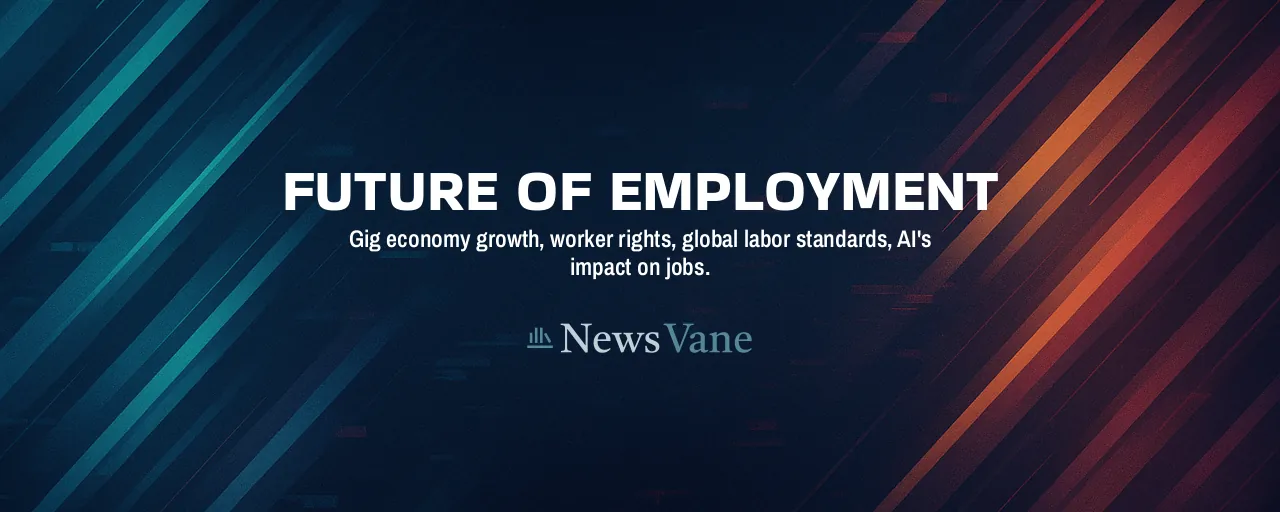The Gig Economy Takes Center Stage
In Geneva, the 113th International Labour Conference brings together delegates from 187 nations to tackle the future of work. The spotlight falls on the gig economy, a sector reshaping how people earn a living through platforms like Uber and Fiverr. For some, gig work means freedom to set their own hours; for others, it raises concerns about job stability and fair pay. Leading the U.S. delegation, Deputy Secretary of Labor Keith Sonderling aims to promote the country's gig model while addressing global demands for new labor standards.
Valued at over $450 billion globally, the gig economy engages 16 percent of U.S. workers and accounts for 12 percent of the world's labor market. U.S.-based platforms lead the charge, driving everything from ridesharing to freelance coding. Yet, as the sector grows, projected to hit $500 billion by 2026, the International Labour Organization faces pressure to regulate it. This conference serves as a critical moment to weigh innovation against worker protections, with real-world impacts for millions.
Defending Flexibility in the U.S.
Sonderling's speeches in Geneva highlight the benefits of keeping gig workers as independent contractors. This status, he argues, fosters entrepreneurship and allows people to work on their terms. Industry advocates, including groups like the Coalition for Workforce Innovation, back this view, pointing to policies like the 2024 Project 2025 plan, which favors minimal regulation and portable benefits over traditional employment rules. For many, this approach fuels economic growth and opens doors to new job opportunities.
On the other hand, some U.S. voices push for stronger worker protections. Advocates for employee classification, inspired by laws like California's 2019 AB5, argue that gig workers need benefits such as health insurance and minimum wage guarantees. The 2020 voter approval of Proposition 22, which preserved contractor status for app-based workers, shows the divide. Sonderling's task is to defend the U.S. approach while engaging with global leaders, including a key meeting with ILO Director-General Gilbert F. Houngbo on fair labor practices.
A Global Call for Standards
Worldwide, the gig economy's rapid rise fuels demands for clear rules. At the conference, 33 trade unions and human rights groups urge a binding ILO convention to secure minimum wages, social security, and bargaining rights for platform workers. Nations like Spain, with its 2021 law on delivery drivers, and India, with its 2020 Social Security Code, are already defining gig work and extending protections. The European Commission's proposed directive points to a growing trend toward unified labor standards.
These efforts reveal a core challenge: balancing economic growth with worker rights. Platforms drive opportunity, especially in emerging markets like Indonesia, where gig work supports millions. Yet, concerns about income volatility and algorithmic oversight persist. Supporters of regulation argue that clear standards prevent exploitation, while those advocating for less regulation caution that overly strict rules could harm small businesses and curb innovation in fast-growing regions.
AI and the Future of Work
Sonderling's roundtable on artificial intelligence highlights the U.S.'s role in tech-driven gig platforms. AI streamlines job matching but raises questions about worker surveillance and job loss. This tension echoes historical debates, from the Industrial Revolution to 20th-century automation. Policymakers now explore hybrid worker classifications and reskilling programs to ensure fairness without slowing progress, adapting old labor laws to a digital world.
The U.S. Department of Labor remains wary of rigid international rules, focusing instead on enforcing the Fair Labor Standards Act at home. Recent moves, like reverting to pre-2024 contractor guidelines, show a preference for flexibility. Still, the global reach of platforms complicates matters, as businesses operate across borders, testing the limits of national labor laws.
Charting the Path Forward
The Geneva talks highlight the gig economy's capacity to empower individuals while also presenting areas ripe for reform. The U.S. defends its flexible model, while global advocates seek universal protections, highlighting tensions between national policies and international goals. These discussions will shape how countries regulate work in a digital age.
For workers and businesses, the stakes are tangible. A balanced approach could preserve the gig economy's benefits while addressing its gaps, but it demands cooperation and fresh ideas. The conference's outcomes may set the tone for labor policies worldwide, influencing how platforms evolve and how workers navigate them.
At its core, the gig economy affects real people, drivers, freelancers, and delivery workers chasing stability or opportunity. As leaders debate in Geneva, the challenge is clear: creating a system that supports innovation and fairness alike. The world is watching, and the decisions made now will echo for years.
